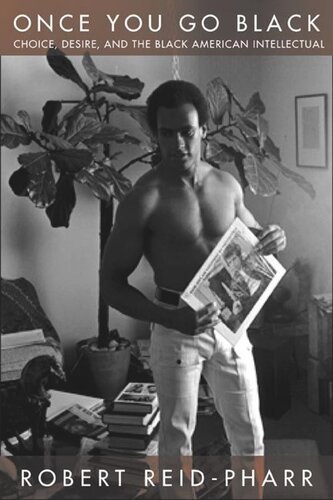

Most ebook files are in PDF format, so you can easily read them using various software such as Foxit Reader or directly on the Google Chrome browser.
Some ebook files are released by publishers in other formats such as .awz, .mobi, .epub, .fb2, etc. You may need to install specific software to read these formats on mobile/PC, such as Calibre.
Please read the tutorial at this link: https://ebookbell.com/faq
We offer FREE conversion to the popular formats you request; however, this may take some time. Therefore, right after payment, please email us, and we will try to provide the service as quickly as possible.
For some exceptional file formats or broken links (if any), please refrain from opening any disputes. Instead, email us first, and we will try to assist within a maximum of 6 hours.
EbookBell Team

4.4
92 reviews2007 Lambda Literary Award Finalist, LGBT Studies
Richard Wright. Ralph Ellison. James Baldwin. Literary and cultural critic Robert Reid-Pharr asserts that these and other post-World War II intellectuals announced the very themes of race, gender, and sexuality with which so many contemporary critics are now engaged. While at its most elemental Once You Go Black is an homage to these thinkers, it is at the same time a reconsideration of black Americans as agents, and not simply products, of history. Reid-Pharr contends that our current notions of black American identity are not inevitable, nor have they simply been forced onto the black community. Instead, he argues, black American intellectuals have actively chosen the identity schemes that seem to us so natural today.
Turning first to the late and relatively obscure novels of Wright, Ellison, and Baldwin, Reid-Pharr suggests that each of these authors rejects the idea of the black as innocent. Instead they insisted upon the responsibility of all citizens—even the most oppressed—within modern society. Reid-Pharr then examines a number of responses to this presumed erosion of black innocence, paying particular attention to articulations of black masculinity by Huey Newton, one of the two founders of the Black Panther Party, and Melvin Van Peebles, director of the classic film Sweet Sweetback’s Baadasssss Song.
Shuttling between queer theory, intellectual history, literary close readings, and autobiography, Once You Go Black is an impassioned, eloquent, and elegant call to bring the language of choice into the study of black American literature and culture. At the same time, it represents a hard-headed rejection of the presumed inevitability of what Reid-Pharr names racial desire in the production of either culture or cultural studies.